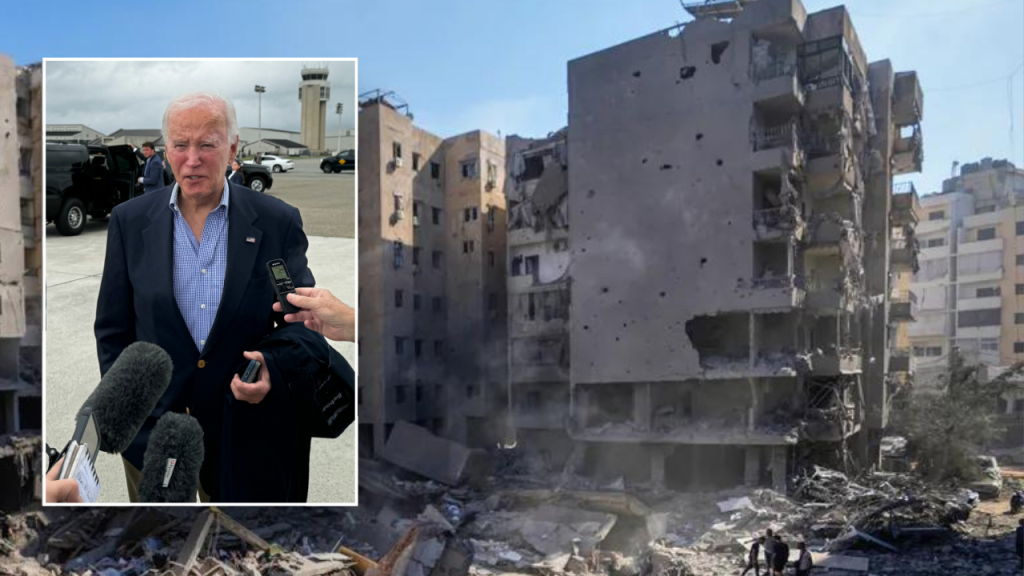President Biden announced that he planned to speak with Israeli Prime Minister Benjamin Netanyahu as the Israel-Hamas conflict in Lebanon intensified. This conversation took place shortly before the Israel Defense Forces launched an airstrike on the Lebanese capital of Beirut, marking the first time the Israeli military had targeted the central part of the city during the yearlong conflict. Biden emphasized the need to avoid an all-out war in the Middle East and stated that the U.S. was working with allies to prevent further escalation.
The Associated Press initially reported the airstrike in Beirut, citing witnesses in the area. The strike occurred as the IDF targeted Hezbollah, a Lebanese terrorist group that supports Hamas. Prior to the airstrike in central Beirut, the IDF had focused its attacks on south Beirut, a known Hezbollah stronghold. Over the weekend, dozens of individuals in Lebanon were killed by Israeli forces, including Hezbollah leader Hassan Nasrallah and Nabil Kaouk, the deputy head of Hezbollah’s Central Council. Biden acknowledged the ongoing conflict and the need for diplomatic efforts to prevent further violence.
Biden confirmed his intention to speak with Netanyahu from Dover Air Force Base earlier in the day, indicating his commitment to engaging with the Israeli leadership in an effort to address the escalating situation. The timing of the conversation was significant, as it took place just hours before the Israeli airstrike in Beirut. Biden emphasized the importance of avoiding a full-scale war in the Middle East and highlighted the efforts being made to ensure the safety of U.S. personnel in the region. The U.S. was working closely with its allies, including France, to prevent the situation from deteriorating further.
The intensification of the Israel-Hamas conflict in Lebanon raised concerns about the potential for a broader regional war. Biden’s comments indicated a sense of urgency in addressing the situation and avoiding further escalation. The airstrike in central Beirut marked a significant escalation in the conflict, as it was the first time the Israeli military had targeted that part of the city. The targeting of Hezbollah leadership in Lebanon added another layer of complexity to the conflict, with both Israeli and Lebanese officials responding to the developments with statements and actions.
The impact of the airstrikes and the targeting of Hezbollah leaders in Lebanon raised questions about the potential consequences of the conflict for the region. The elimination of key figures within Hezbollah signaled a strategic shift in the Israeli military’s approach to the conflict. The targeting of central Beirut also demonstrated the willingness of Israeli forces to escalate their operations in response to perceived threats from Hezbollah and its support for Hamas. The broader implications of these developments for regional security and stability remained a point of concern for international observers and policymakers.
Efforts to mitigate the conflict and prevent further violence were ongoing, with the U.S. and its allies working to de-escalate tensions and engage with key actors in the region. Biden’s statement about speaking with Netanyahu underscored the importance of diplomatic engagement in addressing the crisis. The airstrikes in Beirut and the targeting of Hezbollah leaders highlighted the complexity and volatility of the situation, as well as the potential for further violence and conflict. The need for a coordinated and strategic approach to resolving the crisis in Lebanon and addressing the broader regional challenges remained a priority for the international community.


